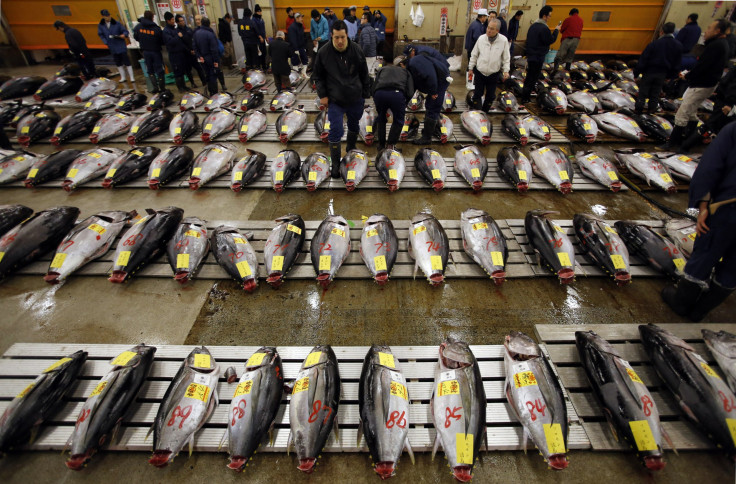Japan Seeks To Exempt Food Items From Sales Tax Hike; Government Scrambles For Alternative Funding

Japan’s ruling coalition was close to securing a deal to broaden sales tax exemptions to food products Friday, in a move aimed at easing the burden on consumers and encouraging household spending. Under the proposed exemption, all fresh and processed foods will be taxed at the current 8 percent even after the rate is raised to 10 percent in April 2017, lawmakers told local media.
The arrangement was agreed upon after a meeting of the tax panels of Prime Minister Shinzo Abe’s Liberal Democratic Party and its junior coalition partner, Komeito Party, Friday. The LDP had initially sought to limit the tax-hike exemption to only fresh foods, but later caved in to Komeito's demand that processed foods also be exempted, to support low-income groups. This marks a significant political victory for Komeito, which has campaigned for tax-hike limits after last year's sales tax rise to 8 percent from 5 percent.
The two parties have been holding talks on ways to ease the negative impact on consumer spending when the tax rate is raised by 2 percentage points to a uniform 10 percent in April 2017.
However, according to sources quoted by Nikkei Asian Review some 1 trillion yen ($8.23 billion) will be needed to accommodate the tax exemption on food products. The government has plans to make up for the revenue hole by foregoing planned medical care breaks on low-income households worth 400 billion yen ($3.28 billion), according to reports. It has not yet secured other funding sources.
The ruling bloc also announced plans to scale back measures to ease taxes on companies making losses, to make up for decline in corporate tax revenue in fiscal 2016. The proposed tax reform is reportedly intended to support Abe’s bid to boost Japan’s gross domestic product to 600 trillion yen ($4.92 trillion) in about five years, in the face of the country’s ageing population and declining birth rate.
Japanese Economics Minister Akira Amari told Reuters Friday there is no change to the government's goal of achieving a primary budget surplus in fiscal 2020. Amari was speaking to reporters on whether the government's plan to exempt food items from a sales tax increase would hurt fiscal discipline.
"This is Abe's response to Komeito ahead of the upper house polls," Hidenori Suezawa, an analyst at SMBC Nikko Securities, told Reuters, referring to Japan’s polls next July. Suezawa warned that if stable funding sources were not secured, it would hurt Japan’s fiscal consolidation. "That would be a setback for fiscal discipline and prompt ratings agencies to downgrade Japan," Suezawa said.
© Copyright IBTimes 2024. All rights reserved.











